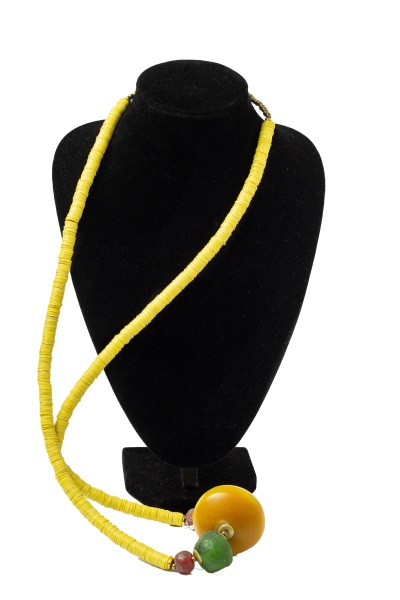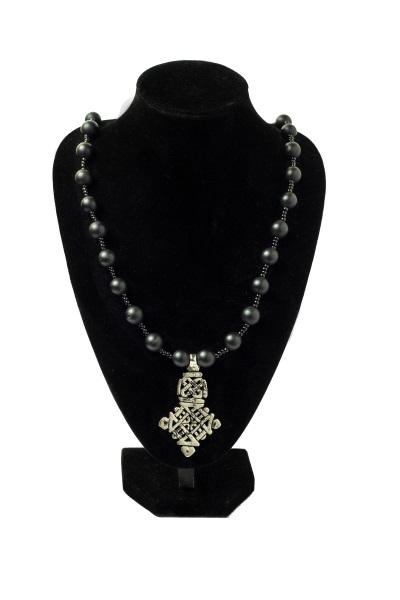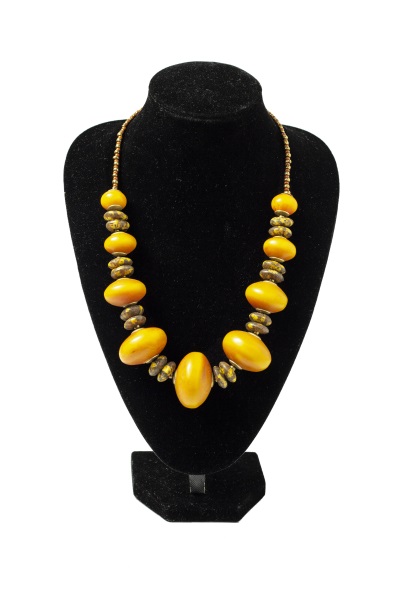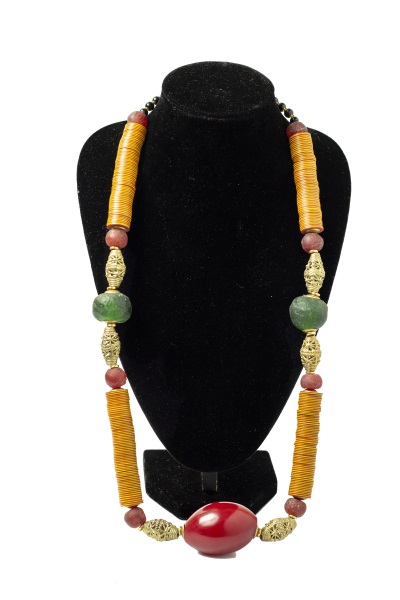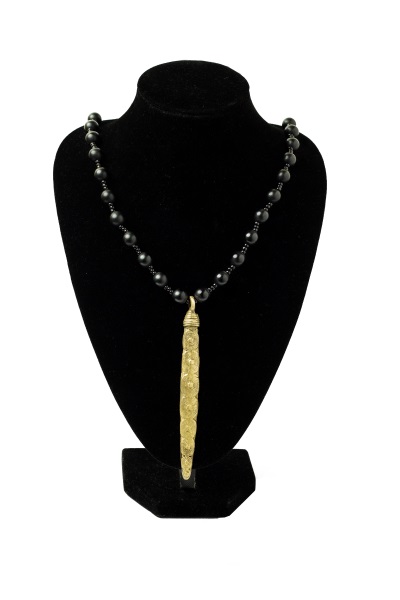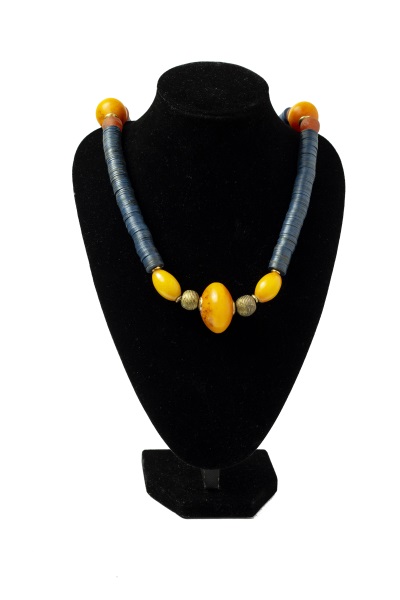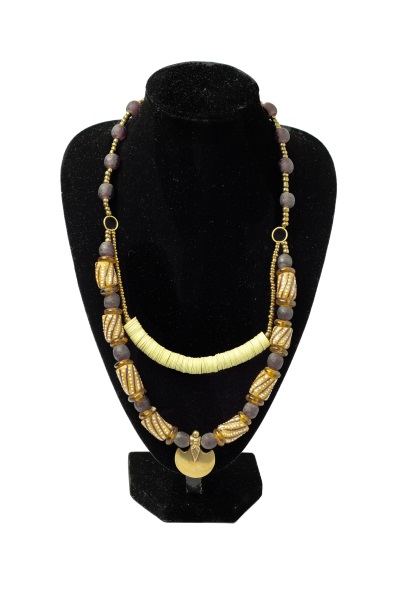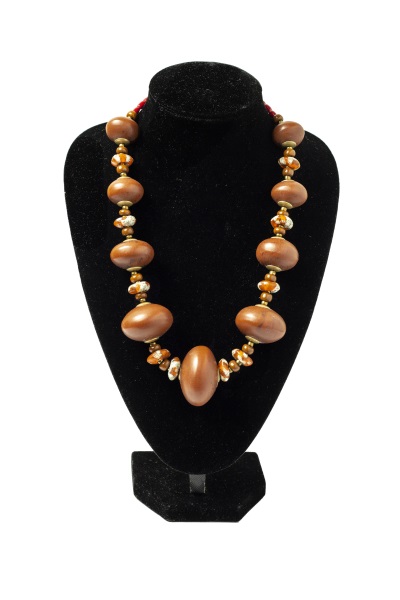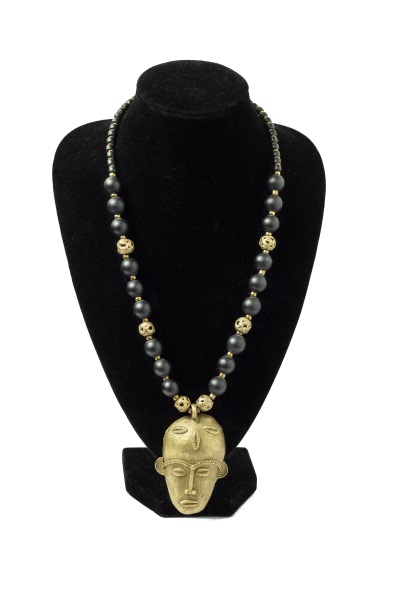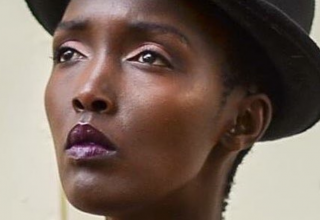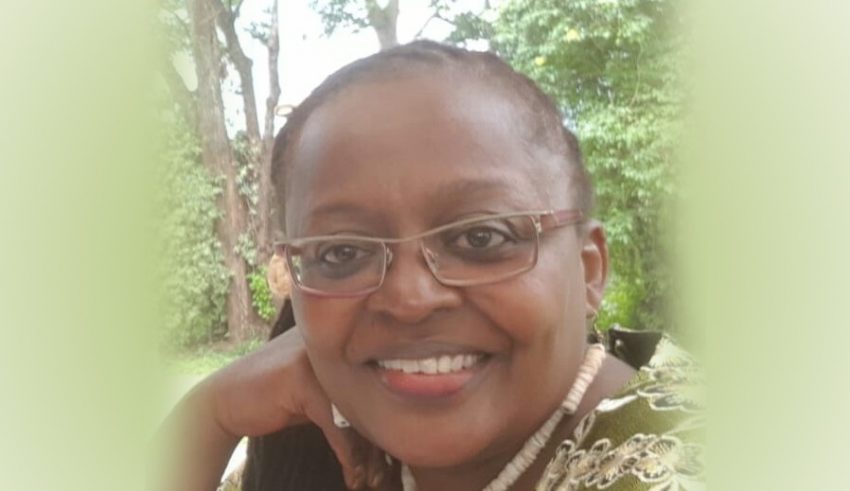
As a lover of the African print, Anne Njoroge wore African jewellery daily attracting the eyes of her colleagues, who in turn challenged her to start a side hustle selling them. Therefore, when her long career in the banking world ended in 2016, she opted to try out a business that would use the artistic part of her brain. She opted to do so, but with a little twist; she would make her own designs and sell them. We all know business is not easy, and we all know in recent statistics that 9 out of 10 start-ups always fails, and while others trudge on, it takes two to three years to even break even. With this information at hand, Anne decided to get a mentor who held her hand as she started out. From the mentor she learned the crucial steps of her business: where to shop for beads, what tools she would need to start off and how to get started. Once she had that framework, Angyne African Creations was born.
Angyne African Creations makes handmade African Jewellery and does their best to customize their pieces to the customers’ needs. The internet also helped Anne a lot as she found tons of tutorials on the web, and for the buy in, she began by selling to her colleagues. Her ground shifted when one of her customers loved her work and introduced her to suppliers of West African beads, amber and recycled glass, which brought her entire dream alive.
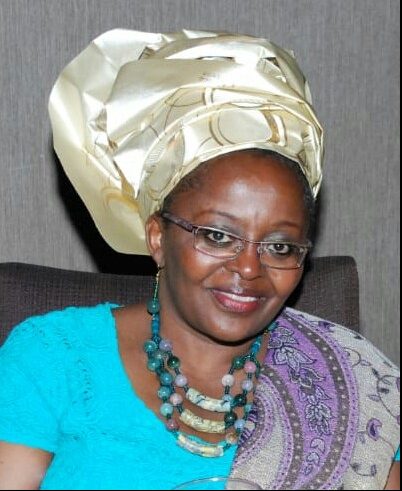
As a young business owner, Anne works from home to cut down on operational costs. Her main customers are through referrals from other clients, and diasporans who are looking for something unique. To widen her reach, she has partnered with a few fashion designers selling African wear to make customized jewellery for their outfits. She also sells some products through the APDK (Association of People Living with Disability Kenya) shop opposite ABC Place in Westlands to boost income.
To win in the industry, she takes the time to understand the client’s requirements and future needs, by taking into consideration what special occasion is coming up, what outfit will they wear, and the most important question, do they have jewellery to go with it?
The business has peak and low seasons. Holiday season when diasporans are visiting are her peak periods as they buy in bulk. Mother’s Day, Christmas Day, birthdays and wedding anniversaries also bring in customers.
Election year (2017) was very tough for most business across the board, and Anne’s wasn’t spared. When it comes to copying designs, the local market suffers a big problem. As soon as a hot design is released, the market gets flooded immediately with copycats. Some even get mass produced by the Chinese industries. To avoid this, she specializes in West African beads which are above reach for most of the Maasai Market artisans. However, the flip side is it poses a new problem for her, especially when what she needs in bulk may not be locally available. Another challenge is a limited choice of accessories that can be used for people with allergies to metal.
To stay ahead in the game, Anne has found ways for strategic partnerships. Some of them include, working with an artisan from Ongata Rongai, who does really good work with brass. She comes up with the designs and he crafts them for her, which complements the beadwork. She also takes her time to network with other jewellery designers to find out how they tackle some issues including the infamous copycats in the game. Currently she has customers in Uganda, UK and the US. The sales are mainly by the Kenyans living there.
Pricing varies with the type of bead used (antique beads are more expensive than modern day ones), accessories added (e.g. brass pendants), creativity (e.g. single strand vs multi-strand) and complexity of a piece. A necklace and earrings set cost between Kshs.1,500 and Kshs.3,000, whereas bracelets can be ordered separately.
As a counsellor, Anne who is in her early 50s and a single mother to an adopted niece now a young adult in her 20s, is using her additional skill to talk to others who are dealing with adolescents to see how they can use beadwork for therapy. Ten years from now, Anne sees herself catering for a niche clientele and the diaspora market.


